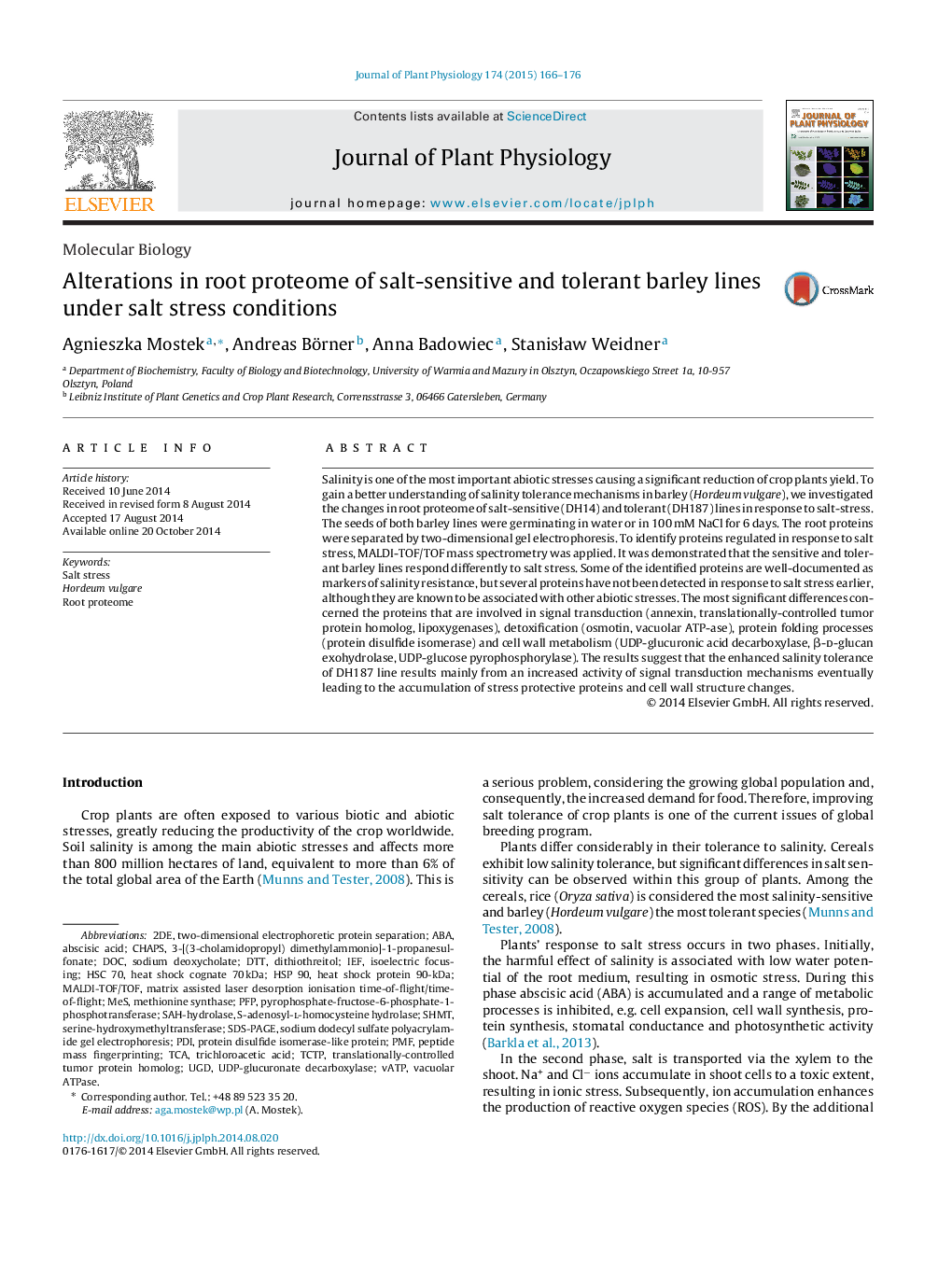| Article ID | Journal | Published Year | Pages | File Type |
|---|---|---|---|---|
| 2055791 | Journal of Plant Physiology | 2015 | 11 Pages |
Salinity is one of the most important abiotic stresses causing a significant reduction of crop plants yield. To gain a better understanding of salinity tolerance mechanisms in barley (Hordeum vulgare), we investigated the changes in root proteome of salt-sensitive (DH14) and tolerant (DH187) lines in response to salt-stress. The seeds of both barley lines were germinating in water or in 100 mM NaCl for 6 days. The root proteins were separated by two-dimensional gel electrophoresis. To identify proteins regulated in response to salt stress, MALDI-TOF/TOF mass spectrometry was applied. It was demonstrated that the sensitive and tolerant barley lines respond differently to salt stress. Some of the identified proteins are well-documented as markers of salinity resistance, but several proteins have not been detected in response to salt stress earlier, although they are known to be associated with other abiotic stresses. The most significant differences concerned the proteins that are involved in signal transduction (annexin, translationally-controlled tumor protein homolog, lipoxygenases), detoxification (osmotin, vacuolar ATP-ase), protein folding processes (protein disulfide isomerase) and cell wall metabolism (UDP-glucuronic acid decarboxylase, β-d-glucan exohydrolase, UDP-glucose pyrophosphorylase). The results suggest that the enhanced salinity tolerance of DH187 line results mainly from an increased activity of signal transduction mechanisms eventually leading to the accumulation of stress protective proteins and cell wall structure changes.
